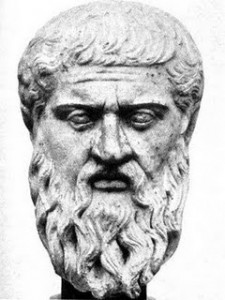Why did Justinian close the Platonic Academy?
 The closing down of the schools in Athens is often held up as the symbolic moment when the traditions of the classical world finally ended. It’s usually portrayed as the triumph of Christian intolerance over the cool-headed spirit of antiquity, a rising tide of anti-intellectualism that snuffed out the last vestiges of the Greco-Roman tradition. The leading actor in the saga- Justinian- is revealed to be a zealot and a boor, all too typical of the unfolding medieval age.
The closing down of the schools in Athens is often held up as the symbolic moment when the traditions of the classical world finally ended. It’s usually portrayed as the triumph of Christian intolerance over the cool-headed spirit of antiquity, a rising tide of anti-intellectualism that snuffed out the last vestiges of the Greco-Roman tradition. The leading actor in the saga- Justinian- is revealed to be a zealot and a boor, all too typical of the unfolding medieval age.
Unfortunately for Gibbon (and others who hold this view), it doesn’t stand up to any kind of scrutiny. The idea of the Church being anti-intellectual is silly enough (if you enjoy reading Aristotle, Homer, or the other pagan authors of antiquity you can thank your local Byzantine monk) As for Justinian, by the standards of the day he wasn’t particularly fanatical- quite the opposite. He married a heretic (Theodora was Monophysite), and employed pagans- the most famous being John the Cappadocian. There were the standard edicts ‘forbidding’ paganism but the emperor was blatantly violating that himself and there is no evidence that they were strictly enforced elsewhere. Athens’ most famous landmark- the Parthenon- was probably still a pagan temple for the duration of Justinian’s reign.
So if he didn’t have an axe to grind against paganism why did Justinian close the Academy in 529?
Competition. He had just founded a new University in Constantinople which was directly under imperial control, and this was a convenient way to get rid of a rival. He did the same thing to the main competitor of his new law school. When an earthquake hit the renowned university of Beirut in 551 he took the opportunity to close it down (officially it was ‘moved’ but it never recovered) while transferring its most distinguished faculty to the capital.
Ruthless? Yes. Anti-intellectual religious fanaticism? Not quite.